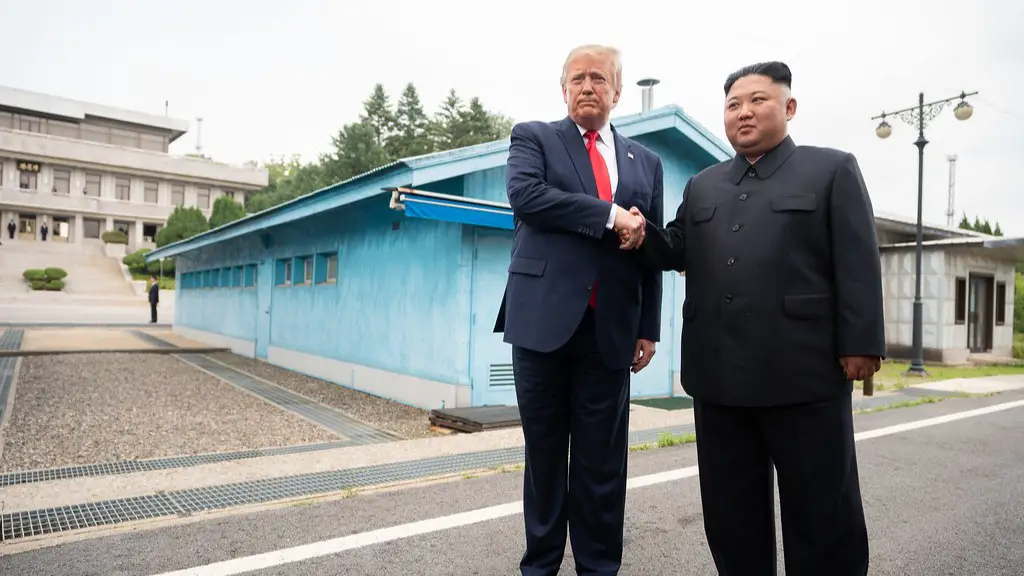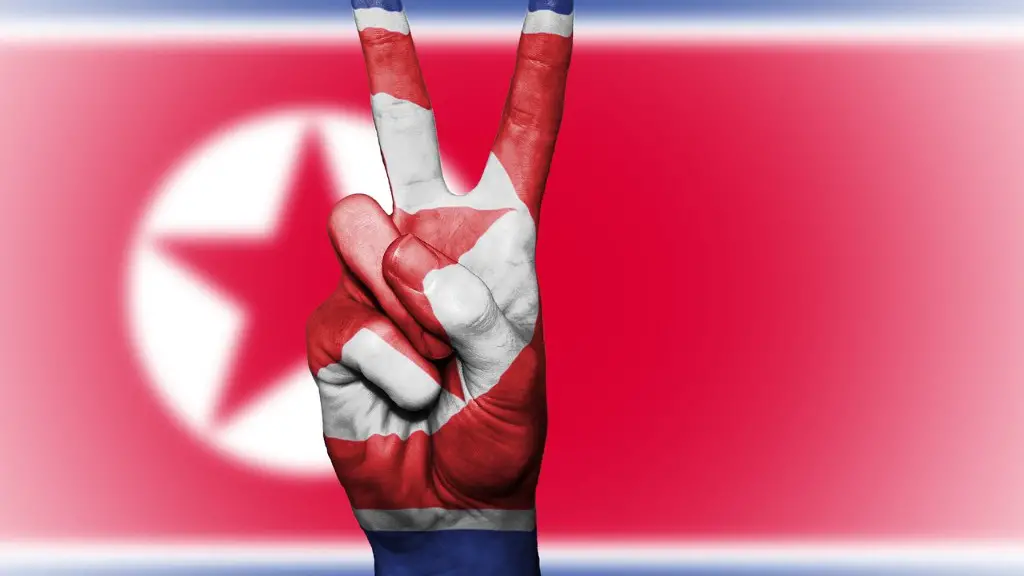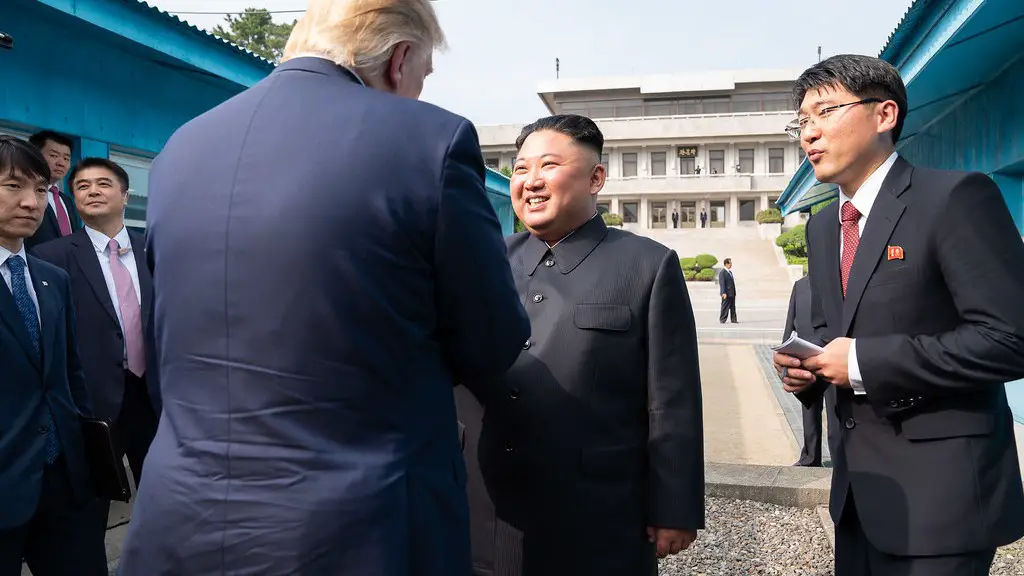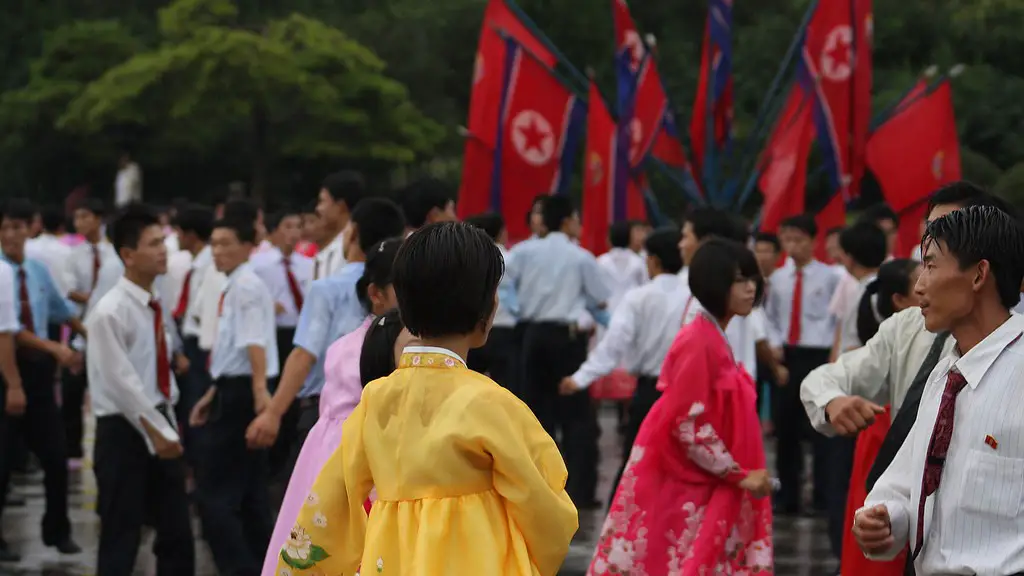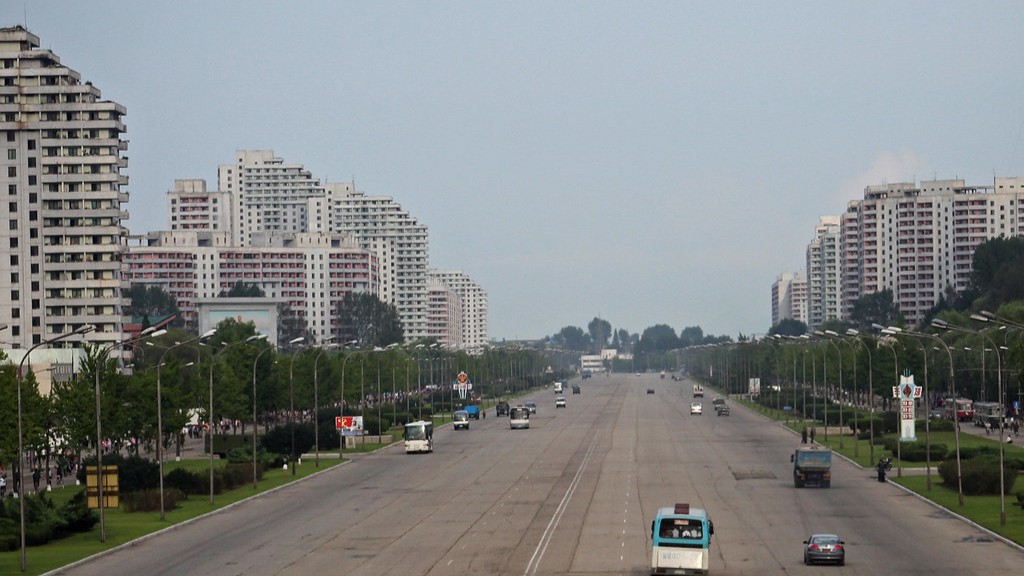The Democratic People’s Republic of Korea, or North Korea, is a country in East Asia, occupying the northern half of the Korean Peninsula. Its capital and largest city is Pyongyang. The Korean Demilitarized Zone serves as the buffer zone between North Korea and South Korea. North Korea shares land borders with China and Russia to the north, and a maritime border with Japan to the east. North Korea is a single-party state under a unitary dictatorship, led by Chairman of the State Affairs Commission Kim Jong-un.
There is a lot of tension and conflict in North Korea. The country is ruled by a dictatorship and there is a lot of human rights abuse. The people are living in poverty and there is no freedom.
Why is North Korea in Crisis?
The North Korea crisis began in 2017 when the country conducted a series of missile and nuclear tests that demonstrated its ability to launch ballistic missiles beyond its immediate region. These tests suggested that North Korea was developing nuclear weapons that could be used against the United States and its allies. In response to these tests, the United States and its allies imposed economic sanctions on North Korea and began to increase their military presence in the region. This crisis came to a head in November 2017 when North Korea fired a ballistic missile towards Japan. However, the crisis began to de-escalate in early 2018 when North Korea announced that it was willing to negotiate with the United States over its nuclear program.
Freedom of movement is severely restricted in North Korea. North Korean citizens usually cannot freely travel around the country, let alone travel abroad. Emigration and immigration are strictly controlled.
What happened in Korea 2022
2022 was a record-breaking year on the Korean Peninsula, though not the sort one would hope for. As of Dec 19, North Korea had launched a dizzying spate of ballistic missile tests—65 in total, eight of which were intercontinental ballistic missiles. The tests were seen as a show of force by the North Korean government, and a clear violation of international law. They also served to heighten tensions on the Korean Peninsula, and in the wider region.
North Korea’s nuclear and missile programs are a major security concern for the region. Any instability or conflict on the Korean Peninsula would have severe strategic, economic and humanitarian repercussions. It is therefore important to find a peaceful and diplomatic solution to this issue.
Why can’t Americans go to North Korea?
Since the travel warning was issued, there have been reports of US citizens being detained in North Korea. If you choose to travel to North Korea, you should have a detailed plan in place for your safety and should make sure that your US-based family and friends know your itinerary.
The Hwasong-14 ballistic missile is a North Korean missile that can travel up to 4,500km. It has also been tested with a range of 8,000km, although some studies suggest it could travel as far as 10,000km. This makes it capable of reaching New York.
Do North Koreans have phones?
The North Korean telephone system is adequate, with 118 million fixed lines available in 2008. However, most phones are only installed for senior government officials. Someone wanting a phone installed must fill out a form indicating their rank, why they want a phone, and how they will pay for it.
Since the Trump administration has taken office, the restrictions on Americans’ ability to travel to North Korea have been even stricter. In September 2017, the US Department of State announced that they would be banning all travel by US citizens to North Korea, effective immediately. This ban is still in place today, and it is unknown when or if it will be lifted.
Can North Koreans travel to USA
North Koreans can travel abroad with permission from the government, much like in other Soviet, socialist, or Eastern Bloc countries. North Koreans must obtain a passport and visa from the North Korean government in order to travel. North Koreans are generally only allowed to travel to countries that have diplomatic relations with North Korea, and are typically only allowed to travel for business or educational purposes.
The Korean war ended in 1953 with an armistice agreement, but no formal peace treaty was ever signed. This means that technically, the two countries are still at war.
The division of the Korean peninsula is largely due to the Cold War. At the end of World War II, the Soviet Union and the United States emerged as the two superpowers. They each had competing ideologies – communism versus capitalism – and this led to a number of proxy wars around the world, including in Korea.
The Korean War was fought between the communist North, supported by the Soviet Union and China, and the capitalist South, supported by the United States. After three years of fighting, the two sides agreed to the armistice agreement, which divided the peninsula along the 38th parallel.
Since then, the two Koreas have been locked in a tense rivalry. There have been a number of military incidents, as well as periods of heightened tensions, usually over North Korea’s nuclear and missile programs.
The most recent period of tension was in 2017, when North Korea conducted a number of nuclear and missile tests. This led to a series of exchanges between North Korea and US President Donald Trump, who threatened to destroy the North if it continued its provocations
Who is North Korea at war with?
The Democratic People’s Republic of Korea, or North Korea, is an isolated, impoverished nation that has been proclaimed an enemy of its southern neighbor, South Korea, an important US ally. North Korea has a history of aggression and hostility towards South Korea, and its nuclear program is a major concern for the international community. Though relations between the two Koreas have thawed in recent years, the situation remains volatile and the future of the Korean Peninsula is uncertain.
The right to freedom of expression is guaranteed by the Constitution of the Republic of Korea. This right includes the freedom to both speech and the press. The Constitutional Court has held that all forms and channels for communication and expression are protected by this right. This right is essential in ensuring that people are able to freely express themselves and exchange ideas.
What can’t you do in North Korea
If you are caught with any of the above mentioned items, you will be subject to strict penalties. Be sure to check the rules and regulations before you travel to North Korea.
The practice of abducting people in order to teach them Japanese language and culture at North Korean spy schools is a tragic one. Older victims are especially vulnerable to this type of exploitation, as they are often abducted for the purpose of obtaining their identities. This is a gross violation of human rights, and those responsible for these crimes must be held accountable.
Who gave North Korea nuclear weapons?
According to US intelligence officials, Pakistani Prime Minister Benazir Bhutto allegedly supplied North Korea with key data on uranium enrichment and information stored on CDs in exchange for missile technology around 1990-1996. Abdul Qadeer Khan, Pakistan’s former top scientist, is said to have been involved in the transfer of this information. This exchange of data and technology is believed to have helped North Korea develop its nuclear weapons program.
Because North Korea lacks international cooperation, it is not recommended to travel there. The increased risk of unlawful detention and imprisonment, as well as the potential for warfare or nuclear escalation, make it unsafe to visit this nation.
Warp Up
In recent months, North Korea has been engaged in a number of provocative actions, including tests of nuclear weapons and long-range missiles. The situation has led to increased tension in the region and has raised concerns about the stability of the North Korean regime.
The current situation in North Korea is highly volatile and unstable. The country’s leader, Kim Jong-un, is unpredictable and erratic, and his actions could lead to disaster. The international community is watching closely, and it is important to keep up with the latest developments.
